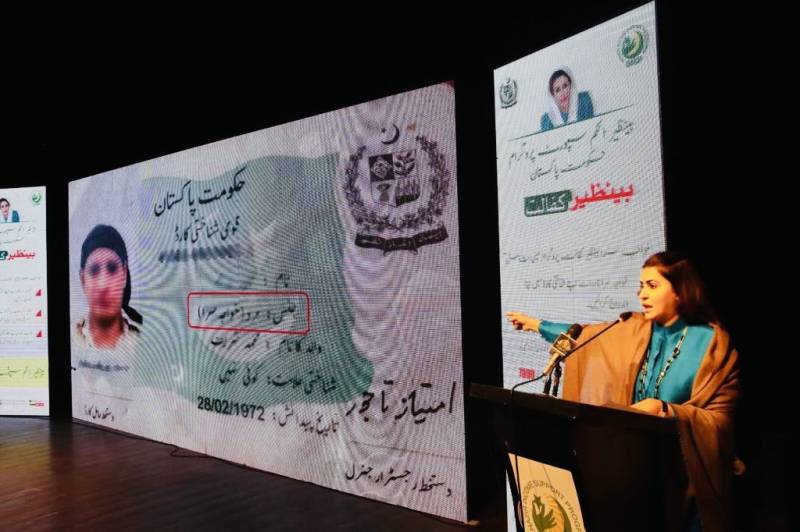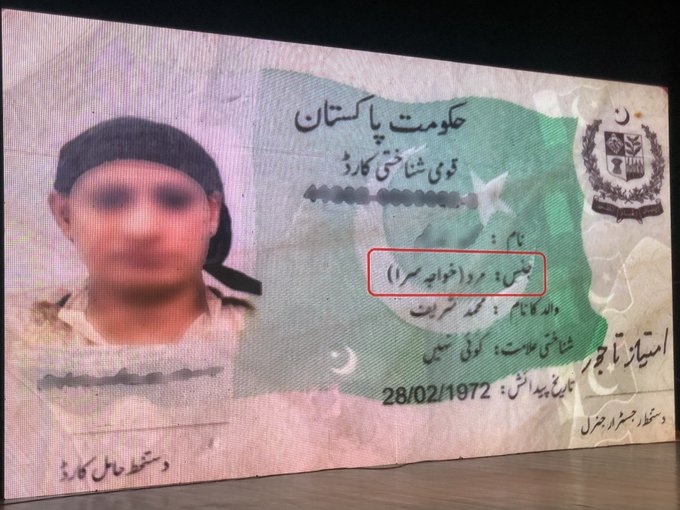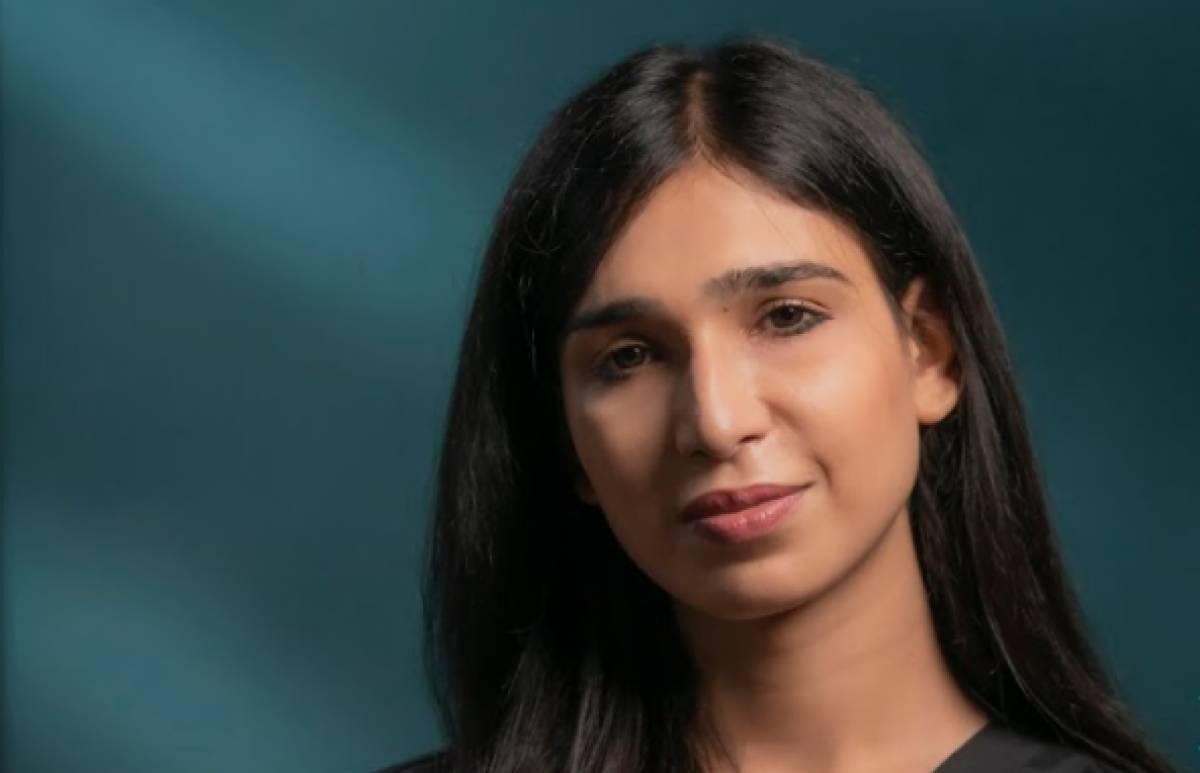
The clouds of desperation and hopelessness rarely leave the side of Pakistan. The ongoing economic crunch has added more burden on the already helpless people of Pakistan, and while some people get a chance to ask for charity, there is a segment that remains ignored and hidden –the transgender community of the country.
The recent action by the government to expand the beneficiaries of the Benazir Income Support Program for transgender people is the much-desired light at the end of the dark tunnel. Federal Minister for Poverty Alleviation and Social Safety Shazia Marri attended a program held at the Arts Council, Karachi on January 29, 2023. She distributed Rs 7,000 to three registered transgender people and explained to the audience that transgender persons should get themselves registered with NADRA and visit a BISP centre to get further assistance. Once registered, they will be eligible to receive Rs 7,000 on a quarterly basis.
But the orders have raised many questions. Analysts want a detailed implementation plan. Pakistan recently introduced the Transgender Persons (Protection of Rights) Act, 2018 which has allowed transgender people to choose Gender X on their national identity cards. Now the first question is - will those who already have ID cards with either transgender (man) or transgender (woman) be allowed to participate in the program, given that it is exclusively for women? Or should transgender people get a new ID card made with Gender X?

Federal Minister Faisal Karim Kundi says that transgender people who have Gender X on their cards can also participate in the program. He adds that it is important to clarify and remove all confusions. Many people are confused over which card will be accepted; most of them believe that only those who have the new card will be eligible. According to him, transgender people with both old and new cards can participate in the scheme.
Benazir Income Support Program has been extending financial aid to women from low-income areas since 2008. It distributes Rs 14,000 every six months to deserving people. The program is also active in Gilgit-Baltistan and Kashmir.
Chairperson National Commission of Human Rights Rabiya Javeri Agha shares, “it was important to include members of the transgender community in the income support program. Community members have been on the receiving end of oppression and ostracism for decades, and they deserve encouragement and financial assistance to live with respect and dignity.”

Dr. Sara Gill – a transgender person – lauds the steps taken by the government to provide financial assistance to transgender people. She says, “the financial situation is getting worse by the day. The nominal amount fixed as financial assistance may not be enough, but it will provide some support to people who desperately need it. But I want to ask the government a simple question: have our leaders thought about how they can make transgender people more financially independent?”
“It’s important for the government to set up institutions for the transgender community where they can learn a skill and start earning for themselves. If the government pays attention to the education of community members, these people will one contribute towards the country’s economy.”
According to data released by NADRA in July 2022, the institution received 2,978 registrations. Around 1,856 cards were completed. Around 87 people got the transgender (woman) card made, and around 1,035 cards were made with transgender (man) written on them.
Human rights activist and transgender Zanaya says that on the one hand, transgender people are fighting a legal battle, and on the other, the government has added them in a financial support program. She adds, “we are fighting for our rights. We want the government to waive the requirement of presenting a medical certificate to confirm our gender. People who choose man or woman as gender do not produce any such certificates, then why are we expected to get one made?”
“But I am happy that the government has at least acknowledged our existence. Registered transgender people will receive Rs 7,000 every three months; it will help the elderly who do not have energy to take up physical jobs. In that regard, the inclusion is indeed a blessing for us.”
Human rights activist Farzana Bari sees the inclusion of the transgender community in the Benazir Income Support Program as a positive step. “This will pave the way for instilling confidence among transgender people and improving their self-esteem. In the Arab world, transgender people aren’t allowed, which is why most of them do not get their ID cards made. With the government’s current step, they will once again get their NICs made, availing themselves of other welfare programs.”
What is Transgender Persons Act 2018?
In September 2021, the National Assembly approved the Transgender Persons Act, 2018 to protect the transgender community’s basic rights, including the right to education and healthcare. The amendments allow them to get their identity as transgender person written on their passports, ID cards, and driving licences. This bill was first introduced by the PTI in 2018.
Speaking about the bill, Rabiya Javeri says, “the bill will take some time to get integrated in law. The act asks transgender people to add either man or woman in their ID cards. The main problem they face is when they want to travel internationally or have to perform Umrah or Haj. Once their domestic documentations are done, the government will assist them in meeting the requirements for international travel and other matters.”
Sara Gill also shares her thoughts regarding the act, “I don’t know what to say. I think both the government and the opposition are not interested in getting the bill finalized.” Sara Gill is the first transgender person to have completed her medical degree from Jinnah Medical and Dental College, Sindh. The Sindh government offered her a house job at the JPMC, which is in progress.
The government is making strides in ensuring that transgender people get their due rights. It has started several projects to provide them access to technical education. According to the bill, transgender people will now be required to appear in entrance tests if they want to a job in the federal police department.
The recent action by the government to expand the beneficiaries of the Benazir Income Support Program for transgender people is the much-desired light at the end of the dark tunnel. Federal Minister for Poverty Alleviation and Social Safety Shazia Marri attended a program held at the Arts Council, Karachi on January 29, 2023. She distributed Rs 7,000 to three registered transgender people and explained to the audience that transgender persons should get themselves registered with NADRA and visit a BISP centre to get further assistance. Once registered, they will be eligible to receive Rs 7,000 on a quarterly basis.
But the orders have raised many questions. Analysts want a detailed implementation plan. Pakistan recently introduced the Transgender Persons (Protection of Rights) Act, 2018 which has allowed transgender people to choose Gender X on their national identity cards. Now the first question is - will those who already have ID cards with either transgender (man) or transgender (woman) be allowed to participate in the program, given that it is exclusively for women? Or should transgender people get a new ID card made with Gender X?

Federal Minister Faisal Karim Kundi says that transgender people who have Gender X on their cards can also participate in the program. He adds that it is important to clarify and remove all confusions. Many people are confused over which card will be accepted; most of them believe that only those who have the new card will be eligible. According to him, transgender people with both old and new cards can participate in the scheme.
Benazir Income Support Program has been extending financial aid to women from low-income areas since 2008. It distributes Rs 14,000 every six months to deserving people. The program is also active in Gilgit-Baltistan and Kashmir.
Chairperson National Commission of Human Rights Rabiya Javeri Agha shares, “it was important to include members of the transgender community in the income support program. Community members have been on the receiving end of oppression and ostracism for decades, and they deserve encouragement and financial assistance to live with respect and dignity.”

Dr. Sara Gill – a transgender person – lauds the steps taken by the government to provide financial assistance to transgender people. She says, “the financial situation is getting worse by the day. The nominal amount fixed as financial assistance may not be enough, but it will provide some support to people who desperately need it. But I want to ask the government a simple question: have our leaders thought about how they can make transgender people more financially independent?”
“It’s important for the government to set up institutions for the transgender community where they can learn a skill and start earning for themselves. If the government pays attention to the education of community members, these people will one contribute towards the country’s economy.”
According to data released by NADRA in July 2022, the institution received 2,978 registrations. Around 1,856 cards were completed. Around 87 people got the transgender (woman) card made, and around 1,035 cards were made with transgender (man) written on them.
Human rights activist and transgender Zanaya says that on the one hand, transgender people are fighting a legal battle, and on the other, the government has added them in a financial support program. She adds, “we are fighting for our rights. We want the government to waive the requirement of presenting a medical certificate to confirm our gender. People who choose man or woman as gender do not produce any such certificates, then why are we expected to get one made?”
“But I am happy that the government has at least acknowledged our existence. Registered transgender people will receive Rs 7,000 every three months; it will help the elderly who do not have energy to take up physical jobs. In that regard, the inclusion is indeed a blessing for us.”
Human rights activist Farzana Bari sees the inclusion of the transgender community in the Benazir Income Support Program as a positive step. “This will pave the way for instilling confidence among transgender people and improving their self-esteem. In the Arab world, transgender people aren’t allowed, which is why most of them do not get their ID cards made. With the government’s current step, they will once again get their NICs made, availing themselves of other welfare programs.”
What is Transgender Persons Act 2018?
In September 2021, the National Assembly approved the Transgender Persons Act, 2018 to protect the transgender community’s basic rights, including the right to education and healthcare. The amendments allow them to get their identity as transgender person written on their passports, ID cards, and driving licences. This bill was first introduced by the PTI in 2018.
Speaking about the bill, Rabiya Javeri says, “the bill will take some time to get integrated in law. The act asks transgender people to add either man or woman in their ID cards. The main problem they face is when they want to travel internationally or have to perform Umrah or Haj. Once their domestic documentations are done, the government will assist them in meeting the requirements for international travel and other matters.”
Sara Gill also shares her thoughts regarding the act, “I don’t know what to say. I think both the government and the opposition are not interested in getting the bill finalized.” Sara Gill is the first transgender person to have completed her medical degree from Jinnah Medical and Dental College, Sindh. The Sindh government offered her a house job at the JPMC, which is in progress.
The government is making strides in ensuring that transgender people get their due rights. It has started several projects to provide them access to technical education. According to the bill, transgender people will now be required to appear in entrance tests if they want to a job in the federal police department.

